Suan Dusit University, through its Environmental Center under the Faculty of Science and Technology, recognizes the urgency of addressing climate change — a core focus of Sustainable Development Goal 13 (SDG 13: Climate Action). The University firmly believes that environmental stewardship must go hand in hand with enhancing the quality of life and public health of its personnel and surrounding communities. Since 2023 through the present (2024), Suan Dusit University has been actively implementing a well-defined Climate Change Action Plan, with particular emphasis on supporting the achievement of indicators outlined in the Phase I National Climate Change Adaptation Plan for Public Health (2021–2030), developed by the Department of Health, Ministry of Public Health.
The University’s Climate Change Action Plan is not limited to internal implementation but also extends to concrete collaboration and data sharing with local government agencies. This includes the development of project and activity reports that align with the national adaptation framework, ensuring systematic data integration, monitoring, and evaluation. Such collaboration serves as a key mechanism for managing public health issues associated with climate-related impacts.
Key Components of the University Climate Action Plan (The University Climate Action Plan)
1. Development and Sharing of Greenhouse Gas Mitigation Mechanisms (Mitigation)
At the core of Suan Dusit University’s climate action efforts lies the reduction of greenhouse gas (GHG) emissions. The University has initiated the Greenhouse Gas Mitigation Mechanism Development Project for Fiscal Year 2024, which serves as a principal measure to mitigate emissions arising from university activities and demonstrates the institution’s strong environmental responsibility.
The key processes of this initiative include:
- Conducting a workshop on greenhouse gas mitigation and efficient resource utilization for 216 university staff and students.
- Developing greenhouse gas mitigation mechanisms related to waste management across 33 university departments, campuses, and education centers.
- Enhancing the efficiency of value-based resource utilization based on the 2023 data baseline, achieving a 2% increase in the collection and recycling of single-use plastics and a 2% increase in the collection of e-waste for proper disposal.
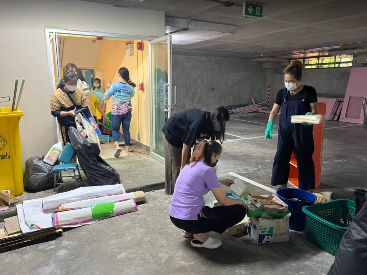
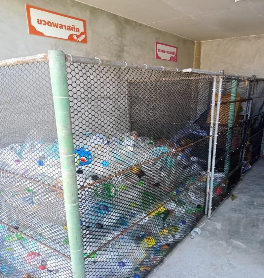
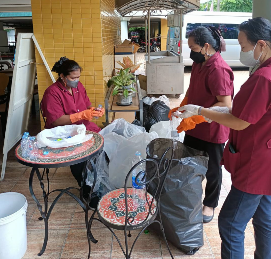
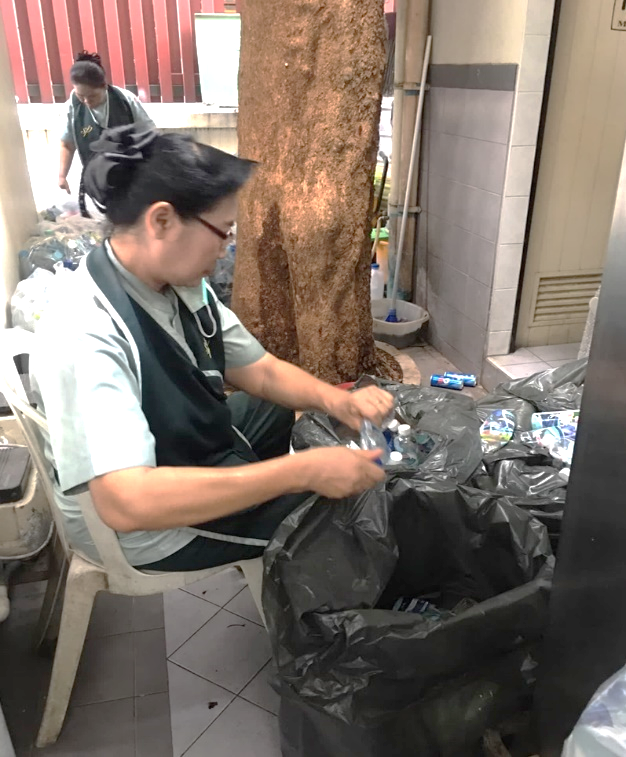
2. Adaptation and Environmental Quality Monitoring
To support the public health objectives outlined by the Department of Health, Suan Dusit University has prioritized the establishment of a monitoring system for fine particulate matter (PM2.5). This system enables real-time tracking and assessment of air quality, serving as a critical component in the University’s climate adaptation and preparedness framework. The initiative aims to safeguard the health of university personnel and students while ensuring that the collected data can be utilized broadly to inform decision-making and contribute to the successful implementation of the Climate Action Plan’s objectives.
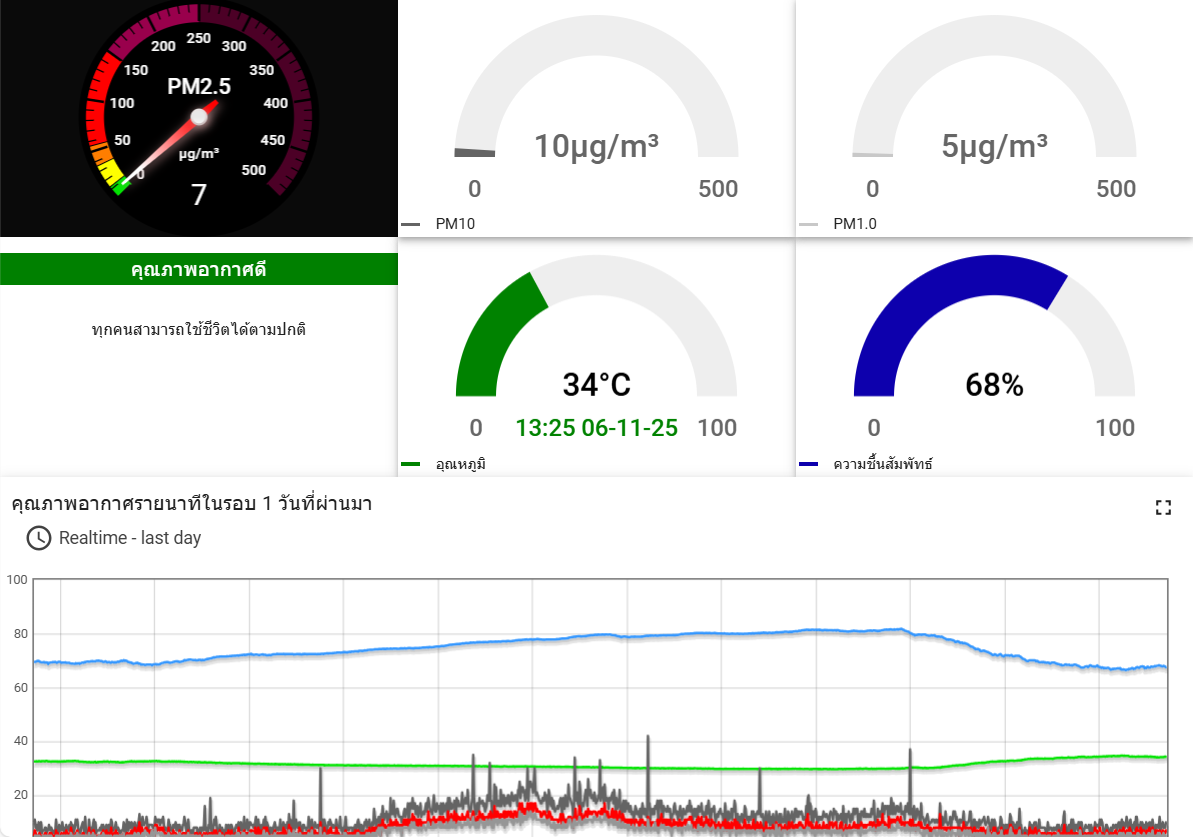
These initiatives reflect that Suan Dusit University not only prioritizes SDG 13 at the policy level but also translates these policies into measurable actions that are genuinely aligned with both national and local public health needs.
